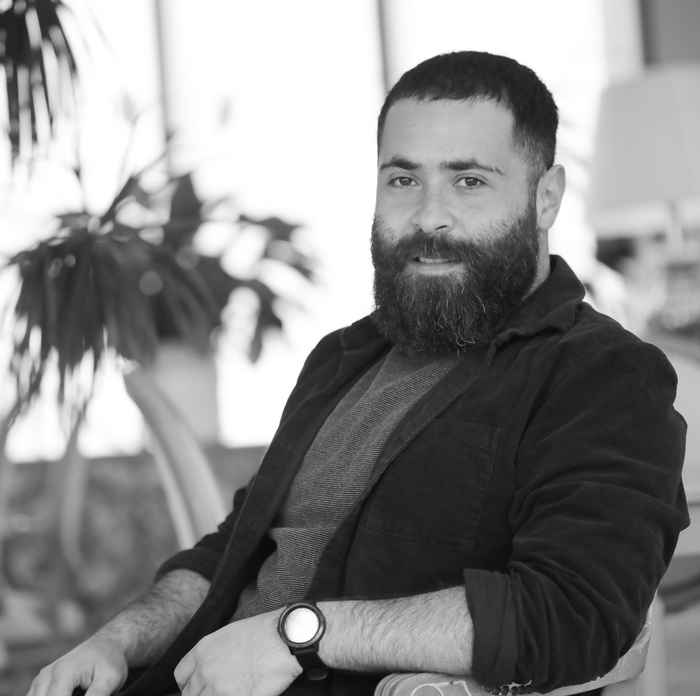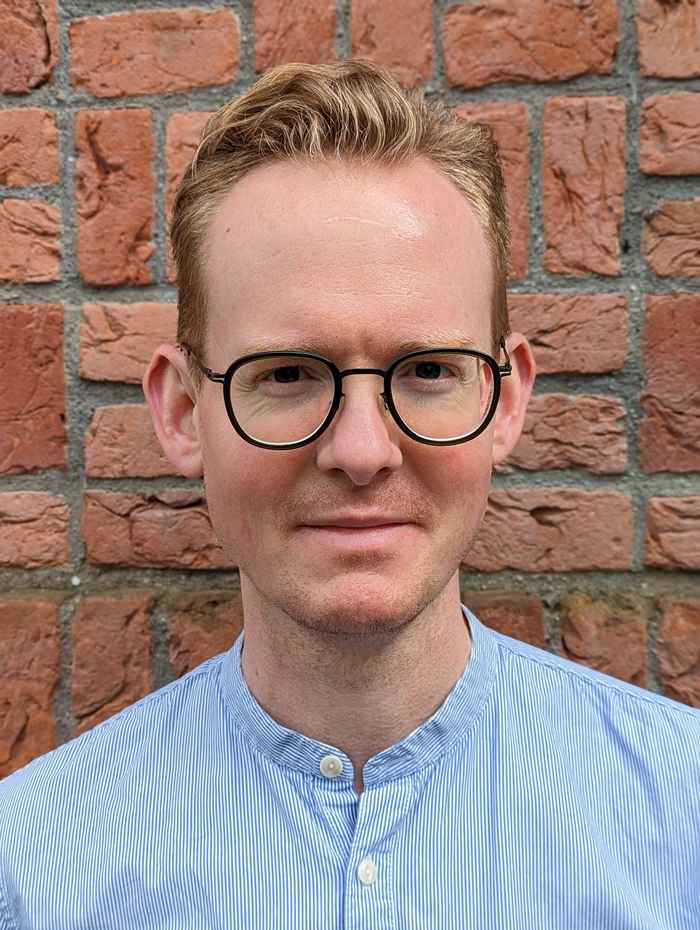2023-2024 Marilena Laskaridis Visiting Research Fellows
24 May 2023
Spiros Chairetis and Carl Mauzy have been awarded the Marilena Laskaridis Visiting Research Fellowships for the 2023-2024 academic year. The Fellowships are sponsored by the Aikaterini Laskaridis Foundation, which is also the main sponsor of the Marilena Laskaridis Chair of Modern Greek Studies at the University of Amsterdam, held by Prof. Maria Boletsi. The fellowships are offered annually on a competitive basis and by application.

Spiros Chairetis: 'Reading' Old Greek Television Fiction Online (How Audiences Respond to Gender- and Weight-diverse TV Shows of the Past on Social Media Platforms)
This project builds on the work I conducted during my doctoral studies based on my (re)reading of popular 1990s and 2000s Greek television comedy texts through the lens of queer, gender and genre studies to challenge the exclusively homophobic, misogynistic and conservative ideologies upon which these texts are assumed to have lied. Moving away from questions of representation and hypothetical viewership, my current work concentrates on reception practices, exploring how audiences interact and assess the dialectic of diversity and/or hegemonic discourses in past television shows, particularly concerning gender, sexuality and fatness. Drawing on netnographic findings (i.e. comments published on YouTube videos of Greek television shows and posts by fans on social media platforms such as Facebook, Twitter and/or personal blogs), I will examine the history of past television shows and explore ways in which they are passed down to different interpretative communities and have become sites of critique, resilient remembrance and even dispute during the #MeToo/(post-)pandemic era. An analysis of this kind aims to reveal how the traditionally silent voices of fans and online audiences can not only add significantly original thought concerning the reception of television fiction to the academic community but also open up and diversify dialogue with the wider television/media landscape.
Spiros Chairetis (DPhil, Oxford University 2021) is currently (2023) a postdoctoral Researcher in the Department of Communication, Media, and Culture at Panteion University and will be Marilena Laskaridis Visiting Fellow at the University of Amsterdam in the spring semester of 2024. He co-edited the special issue Introduction to Greek Television Studies: (Re)Reading Greek Television Fiction Since 1989 (2019) and wrote the poetry collection Ο γοργόνος & άλλα πλάσματα / The merman & other creatures (Thraca, June 2023). He is finishing a monograph titled Greek Television Comedy: Resilient Texts, Queer Readings. His current research focuses on queer theory, the relationship between Greek television fiction and its audiences, and the consumption of past television texts through different social media platforms.

Carl Mauzy: German occupation photography in WWII Greece. An examination
The project looks at the photography taken by German soldiers during Germany’s occupation of Greece in 1941-1944. Such photography is an underexplored aspect of Greece’s World War II social and cultural history, that has only recently begun to be explored. To pursue this project, I will look at the photographic archive of Karl Rauscher which is housed at the NIOD in Amsterdam. Rauscher was a member of the Luftwaffe stationed in Greece during WWII. Rauscher photographed extensively during his stay in Greece, documenting the daily routine of the German occupiers, visits to archaeological sites as well as the Greeks he encountered. By studying Rauscher’s war time pictures of Greece, I will investigate what place such images can have in the historical narratives and cultural memory of Greece, and more broadly in the historiography of WWII, taking into account the visual practices of the perpetrator. Furthermore, I will examine how the amateur nature of Rauscher’s photographs might allow us to examine these images as instantiations of multiple histories, beyond a dichotomy of perpetrator/victim.
Carl Mauzy holds a PhD from King’s College London, where he studied photographic visualizations of collective identities in Greece during the first half of the twentieth century. Previously he worked as a producer and curator at the National Museums of World Culture in Sweden. His academic research focuses on visual approaches to history, photography’s role in historical imagination, and the history of modern Greece.